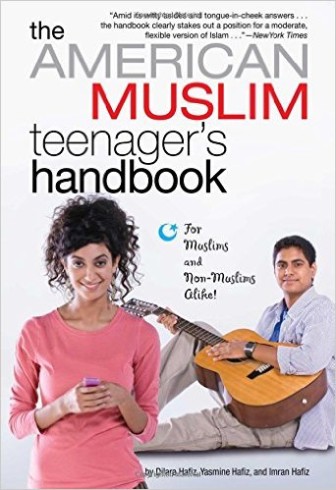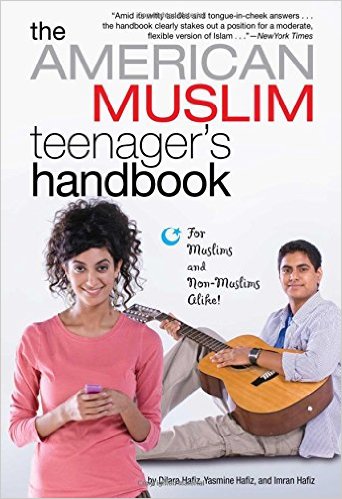 “As an American Muslim I feel like my religion is under attack,” said Dilara Hafiz, an instructor at Jacksonville University in Jacksonville, Florida.
“As an American Muslim I feel like my religion is under attack,” said Dilara Hafiz, an instructor at Jacksonville University in Jacksonville, Florida.
Hafiz teaches a course on American Muslim issues, the Middle East and Islam.
She is a former leader of the Arizona Interfaith Movement, which brings together people of various religions to foster understanding among them. And she is co-author, with her two children, of The American Muslim Teenager’s Handbook.
The book was written “for other Muslim-American teens who we thought might be having a tough time after 9/11,” she said. But it’s become popular as a quick and easy guide to Islam 101, she said.
“Religious literacy is very important,” she said. Culture and religion are two very different things, and understanding that difference is essential, she said.
To create more understanding and knowledge among young people, Hafiz suggests youth organizations reach out to a local mosque. Ask to involve the youth in a project that benefits the community, she said. Getting youth of various religions together helps educate everyone.
“It’s good to get them together to realize they are not alone,” she said.
In her work with an interfaith youth group in Arizona, Hafiz saw Muslim kids and Jewish kids come to realize they both had been treated as outsiders at one time or another. African-American kids shared their experiences of discrimination.
When adults seek to educate kids about Islam — whether in school or in after-school programs — it doesn’t help to single out the Muslim kids, Hafiz said. They have already been made to feel “other.”
“It’s better to have a multicultural unit,” she said, that teaches about various religions alongside each other.
One thing youth leaders can do when they have a question about Islam, Hafiz said, is to substitute the word “Jewish” or “Catholic” in their question. Then see whether the question still makes sense — or whether it becomes offensive.
To Hafiz, it’s offensive to ask a Muslim person “why haven’t you condemned the Paris attacks?”
Would you ask a Christian person why they haven’t condemned the shooting at a Planned Parenthood clinic in Colorado, which was carried out by a Christian, she said.
To her, the attackers in these situations are crazy people committing a crime.
“I don’t assume every Christian is a KKK sympathizer,” she said.
The information gap
Many Americans are uninformed about Islam and Muslims. A 2010 Gallup poll showed two-thirds of Americans reported they had very little knowledge of Islam.
“Islam is a religion. It’s not an ethnicity,” Hafiz said.
[Related: Muslim Youth Treated as Outsiders, Face Hostility: Youth Programs Respond]
Muslims in America are a very diverse population, according to a Pew report, “Muslim Americans: Middle Class and Mostly Mainstream,” published in 2007.
“Nonetheless, they are decidedly American in their outlook, values and attitudes,” according to Pew.
“In their level of religious commitment, Muslim Americans most closely resemble white evangelicals and black Protestants,” the report said. All three groups say religion is very important in their lives.
Like evangelicals, only about one-fourth of Muslims identify themselves as Americans first and Muslim second.
Half of Muslim Americans believe the Koran is the word of God to be taken literally, according to Pew.
Thirty-eight percent of Muslims identify their political ideology as moderate.
Nearly two-thirds said there is not a conflict between living in a modern society and being a devout Muslim. A large majority espouse the American value of hard work, saying that most people can succeed in America if they are willing to work hard.
A majority have a positive view of American society, saying their communities are good places to live.
Two-thirds of Muslim Americans are first-generation immigrants, according to the report. Muslims make up less than one percent of the U.S. population, according to Pew.
Making kids hypersensitive
Muslim kids are misunderstood, said Louis Cristillo, of Teachers College Columbia University, in a 2008 report on a survey of New York City high school students. His survey was done in part to inform school staff, private community organizations and city agencies that work with Muslim youth.
These kids are hyperconscious of being Muslim, whether they are religious or not,” Cristillo said. “It’s as if they’re another racial group — ‘the Muslims,’ he said.
More than half of Muslim students believe they experience more stress than non-Muslim students, his report said.
They can also experience conflict between the values of their families and the larger society.
That kind of pressure is felt by children in some other religious groups, too, Hafiz said. When she lived in Arizona, for example, she was aware that Mormon kids faced similar pressures: finding prom dresses that were modest enough, a prohibition on alcohol, rules around dating.
“High school is a pressure cooker,” she said. “Kids are trying to fit in.”
More related articles:
Honor Thy Youth Group: Interacting with the Young and Religious






























